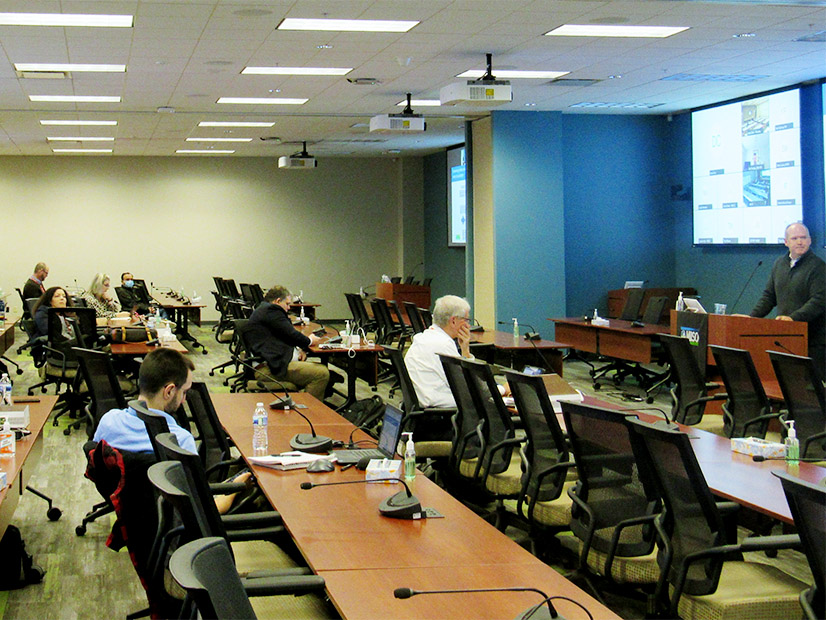CARMEL, Ind. — MISO this week pulled off a series of in-person meetings at its three offices almost two years since the COVID-19 pandemic began.
The RTO held on-site committee meetings simultaneously in its offices in Carmel, Ind.; Eagan, Minn.; and Little Rock, Ark. Stakeholder attendance was sparser than usual with the Omicron variant peaking and company travel budgets bouncing back. Some speakers appeared through video conferencing.
“I will have to relearn to stand at a podium in front of stakeholders. It’s been nearly two years,” MISO’s Jeremiah Doner said in opening a Monday presentation on transmission cost allocation.
The grid operator required proof of full vaccination or a recent negative COVID test before admitting stakeholders into its conference rooms. Masking was optional, lunches were boxed and stakeholders had the option to sit more than six feet apart.
The grid operator gathered stakeholders in-person and off site late last year in Orlando, Fla., for its final quarterly board meeting of 2021. (See MISO Board of Directors Briefs: Dec. 9, 2021.)
MISO kicked off its first major meeting week of 2022 with a review of important subjects it plans to cover through the summer. It was the RTO’s inaugural executive update, which it plans to hold on a near-monthly basis to keep its stakeholder community abreast of its goals and work timeline.
Wayne Schug, vice president of strategy, said MISO will debut a rolling 12 to 18-month management plan that lays out committee tasks, time reserved for analysis and filing deadlines.
Leadership said the footprint’s rapid clean energy transition supports its case for long-term transmission planning and seasonal capacity auctions. It also said stakeholders should expect ongoing discussion in the first half of 2022 on its new participation models for energy storage and distributed resources; implementation of dynamic transmission line ratings; upgrades to its market-clearing engine; and an accreditation process for renewable, storage and hybrid resources.
Seventeen MISO utilities have emissions reduction targets greater than 80%, and five states in the footprint are considering 100% clean energy goals.
The topics will be explored under a lighter meeting schedule that calls for the RTO’s main stakeholder committees to hold eight meetings each per year. MISO plans to evaluate the meeting schedule’s effectiveness in May. (See MISO Modifies Stakeholder Meeting Schedule.)
Some stakeholders have objected to the slimmed-down schedule, arguing that MISO is facing industry changes that necessitate in-depth discussion and that stakeholders are supposed to dictate the frequency of meetings, not the RTO.




